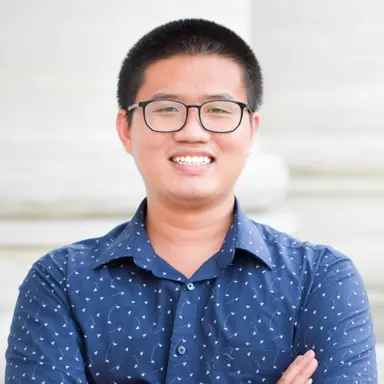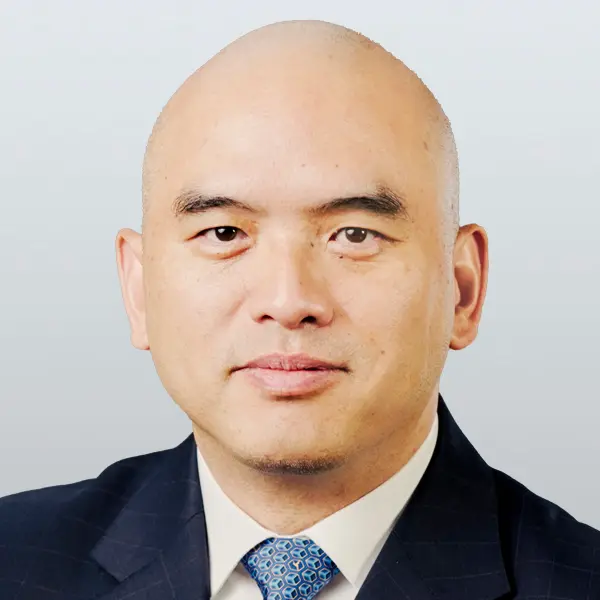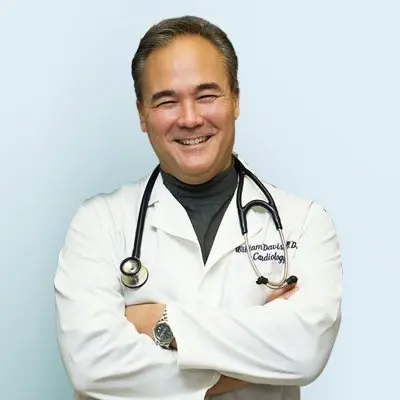Categories
Hot Insights
See All-


Does Nicotine Raise Blood Pressure? Explore The Link, Prevention Strategies, and More
Does smoking cause high blood pressure? In the short term, yes. Every time you smoke, it causes a temporary increase in blood pressure (1). Blood pressure increases when blood has difficulty traveling through the blood vessels. In simple terms, it’s like you’re in a tunnel with a lot of people, and you need to make […]
-


Back Pain After Sleep: Causes, Chiropractic Care, and Other Remedies
Back hurts after sleeping: Common causes Poor sleep habits and an unsupportive sleep environment are common culprits behind back pain after sleep (5, 6). However, underlying medical conditions like arthritis, disc herniation, and fibromyalgia can contribute to the condition. Here’s a look at the common causes. Poor sleeping position Sleeping on your stomach can force […]
-


Are There Cancer Killing Foods? Healthy Fats Can Help
What are healthy fats? Healthy fats are essential fatty acids that are vital to many bodily functions. Essential fatty acids fall into two categories: monounsaturated and polyunsaturated fats. Monounsaturated fats (MUFAs): MUFAs help lower bad cholesterol, reducing the risk of heart disease and stroke (6). These fats also provide essential building blocks for your body’s […]
-


Can Type 1 Diabetes Be Cured? Discover Latest Breakthrough
Type 1 diabetes average life expectancy Before the introduction of insulin therapy in 1922, T1D was a fatal diagnosis. Still today, experts say that without insulin therapy, individuals with T1D have a lifespan of days to weeks, depending on the severity of complications (3). With insulin, however, people are living longer with T1D now than […]
-


How To Stop Back Spasms With Core Stability Exercises and More
What causes muscle spasms in the back? Various factors, such as muscle strain, stress, injuries, or medical conditions, cause back muscle spasms. Let’s examine the symptoms and causes of back muscle spasms in detail. Symptoms of back muscle spasm Back spasms cause great discomfort. This is why it’s important to recognize their symptoms. If you’re […]
Video Series
See All-



Half the World Eats Rice Toxins Daily That Damage Kidneys
-


See How Spinach Can Damage Your Kidneys
-


Avoid These 7 Plant-Based Foods That Can Damage Your Kidneys
-


These 7 Daily Habits Can Help Lower Your Creatinine Levels | Improve Kidney Health
-


9 Skin Signs That May Indicate Your Kidneys Are Damaged
-


Surprise! Drinking Water Wrongly Can Damage Your Kidneys
-


9 Fruits to Lower Creatinine Levels and Improve Kidney Health
-


Top 9 Drinks To Help Stop Proteinuria and Heal Your Kidneys
-


Urinating Every 2 Hours? 11 Reasons Why (Plus Home Remedies)
Advisory Board
Learn more-


Jordan Stachel, MS, RDN
NutritionistJordan is most fulfilled when guiding others towards making stepwise, sustainable changes that add up to big results over time. Jordan works with a wide variety of individuals, ranging in age from children to the elderly, with an assortment of concerns and clinical conditions. She helps individuals optimize overall health and/or manage disease states using personalized medical nutrition therapy techniques. It can be difficult for individuals to navigate health conditions and to discern between nutrition information that is both credible and accurate, versus misinformation and conflicting guidance. As an expert in the field, Jordan finds great fulfillment in filling this gap by providing detailed clarification and explanation by leading the discussion surrounding nutrition and wellness. Jordan looks forward to continuing to help others achieve the healthiest version of themselves, improve longevity, and be a dependable source and voice within the field of nutrition and dietetics.
-


Komal Gilani, MBBS
General Medical Practitioner Pakistan Medical & Dental Council (PMDC)Dr. Komal Gilani is a licensed general medical practitioner in Pakistan with a Bachelor of Medicine & Bachelor of Surgery (MBBS) degree. Her research-oriented approach to clinical queries defines her take on health. Presently, she is actively engaged in multiple studies aiming to improve healthcare through her work.
-


Preet Pal Singh Bhinder, MD
MD and FID (Fellowship in Diabetes, Royal Liverpool Academy) Diabetes SpecialistPreet Pal Singh Bhinder is a physician (M.D. Medicine) with specialization in diabetes (Fellowship in diabetes, Royal Liverpool Academy). He has a particular interest in metabolic disorders.
-


Anh Cao, M.Sc., Ph.D Candidate
Ph.D Candidate in Immunology Immune Cells, Innate Immune CellsAnh Cao is a Ph.D. candidate in immunology at Harvard University. He obtained his M.Sc. Degree in immunology at University of Toronto. For the last 8 years, his research has focused on a wide range of immune cells, including B cells, T cells, and innate immune cells. His publications have been featured in high-profile journals such as Cell and Nature which have been cited over 200 times.
-


Sean Lin, Ph.D.
Microbiologist & Former US Army Preventive Medicine SpecialistDr. Xiaoxu Sean Lin is an assistant professor in the Biomedical Science Department at Feitian College in Middletown, N.Y. Dr. Lin is also a frequent analyst and commentator for Epoch Media Group, VOA, and RFA. He is a veteran who served as a U.S. Army microbiologist and also a member of Committee on the Present Danger: China.
-


Donna Schwontkowski, DC (retired), MS and BS Nutrition, Herbology
Clinical Nutrition, Deficiency Diseases, Heavy Metal & Environmental Toxins, Detoxification, Chiropractic Medicine, Herbal Healing Master Herbalist certification in herbs from the School of Natural Healing BS NutritionDr. Donna Schwontkowski is a retired chiropractic physician with a master’s degree in Nutrition and Herbology. She has focused her career on three primary areas: clinical nutrition, learning and memory, and health/self-improvement publications. Dr. Donna’s mission in life is to act as an intercessor for people in all three of these areas, allowing them via teaching them, working in groups with them, or mentoring them to reach their potential in health, learning and memory, and ability to transform one’s life. Dr. Donna was also a journalist for health and fitness magazines for 15 years, the editor of Sacramento, CA’s Health & Fitness Magazine, and Co-producer and host of a TV show on health for four years. She has taught hundreds of community courses on many aspects of health and natural healing to thousands of students over the years. Her accelerated learning background has also allowed her to teach thousands of college and postgraduate students science and dozens of children how to read five books in a week as well as how to learn any subject quickly, including health and science.
-


Chain-Ruei Huang, RD
Nutritionist Eating-related behavior therapy, preventative nutrition, public health nutritionChian-Ruei Huang is a compassionate and dedicated Registered Dietitian Nutritionist with a wealth of experience in eating-related behavior therapy, preventative nutrition, public health nutrition, and disease nutrition. As a strong believer in the power of food and its role in the human life cycle, Chian-Ruei understands the importance of nurturing a healthy relationship with food and promoting well-being at every stage of life. Driven by her passion for holistic health, Chian-Ruei has integrated her yoga training into her clinical nutrition counseling, fostering greater understanding, communication, and empathy with her patients. This transformative practice has allowed her to connect more deeply with her patients, guiding them on their journeys towards healthier lifestyles. Throughout her career, Chian-Ruei has worked in various roles such as weight-loss nutritionist, long term care dietician, and nutrition advisor for multiple health-related brands. Her diverse experiences have provided her with the skills and knowledge needed to address a wide range of nutritional issues and collaborate with multidisciplinary teams effectively. In addition to her work as a Registered Dietitian Nutritionist, Chian-Ruei is dedicated to sharing her expertise and perspective through media channels, aiming to benefit a broader audience and inspire others to embrace the essence of life through food and yoga. With her unwavering passion for holistic health and commitment to improving lives, Chian-Ruei Huang is an advocate for the integration of nutrition and wellness in everyday life.
-


Yu-Hsin Liang, MD
ECFMG Certification, Medical Licensure in Taiwan, Clinical Training at National Taiwan University Hospital Graduate Student in Harvard T.H. Chan School of Public HealthYu-Hsin Liang is currently a current graduate student at the Harvard T.H. Chan School of Public Health. He received his medical education at the National Taiwan University (NTU) College of Medicine, during which he co-developed a hospital-granted surgical model and a winning integrative web model of machine learning and electronic medical records. Yu-Hsin Liang obtained his physician license in Taiwan in 2022.
-


William Davis, MD
Cardiologist Director of Biotechnologies, Northern Medical Center, NYDr. William Davis is a cardiologist and New York Times #1 bestselling author of the Wheat Belly book series. He is Medical Director and founder of the Undoctored program including the Undoctored Inner Circle. He is Chief Medical Officer and co-founder of Realize Therapeutics Corp. that is developing innovative solutions for the disrupted human microbiome and author of the book Super Gut.
